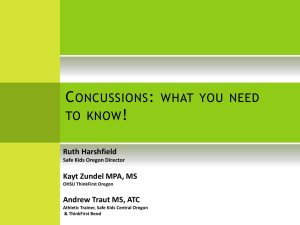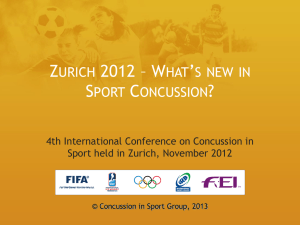Concussions and Headgear Powerpoint
advertisement
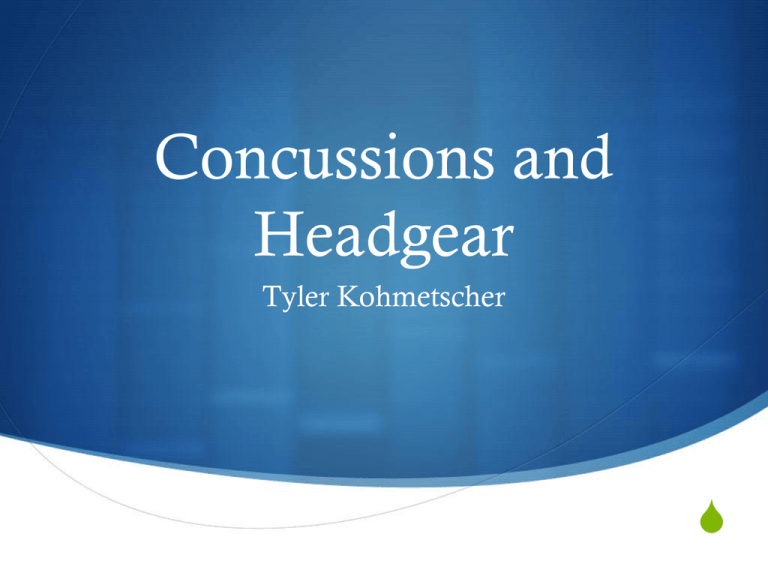
Concussions and Headgear Tyler Kohmetscher S Definition S A concussion is a type of traumatic brain injury that is caused by a blow to the head or body, a fall, or another injury that jars or shakes the brain inside the skull Signs and Symptoms S Thinking and remembering S Feeling slowed down S Not thinking clearly S Not being able to remember new information S Not being able to concentrate S Physical S Fuzzy or blurry vision S Headache S Sensitivity to light or noise S Feeling tired or having no energy S Dizziness S Balance problems S Nausea and vomiting Signs and Symptoms (cont) S Emotional and mood S Sad S Easily upset or angered S More emotional S Nervous or anxious S Sleep S Sleeping less than usual S Sleeping more than usual S Having a hard time falling asleep Factors affecting Concussions BPS Model S Biological S Female S Child S Psychological S Having to “suck it up” for parents, coaches S Pressure to perform S Social S Relationships with parents or coaches S Live up to social gender roles S Males show no signs of weakness Diagnosis S ImPACT Test S Taken at beginning of year before beginning athletics S Baseline to test if you experienced concussion later S Memory, attention span, and reaction time S Physician S Check for attention span, memory and reaction time Headgear S Became popular in the 2003 Women’s World Cup S Resembles an enlarged headband S Weighs less then 2 ounces S Covers forehead, temple, and occipital bone in the back of the head Stats for Headgear S In a population studied, S 47.8% had experienced symptoms of a concussion during the S S S S current soccer year. 26.9% of athletes who wore headgear had concussions 52.8% of those who did not wear headgear had concussions More than one concussion was experienced by 50.0% of the concussed headgear athletes 69.3% of the concussed No-head gear group had experience more than one concussion Pros and Cons S Pros S Prevents concussions S Makes you more confident in playing harder S Not scare S Cons S Not comfortable S Makes you look not very “cool” S Can still suffer concussion whether wearing it or not References S Concussion - WebMD: Causes, Symptoms, Diagnosis, Treatment, and Prevention. (n.d.). WebMD - Better information. Better health. Retrieved November 7, 2012, from http://www.webmd.com/brain/tc/traumatic-brain-injuryconcussion-overview S Broglio, S., Yu, Y., Broglio, M., & Sell, T. (n.d.). The Efficacy of Soccer Headgear. National Center for Biotechnology Information. Retrieved November 7, 2012, from http://www.ncbi.nlm.nih.gov/pmc/articles/P References S LONGMAN, J. (n.d.). The New York Times > Sports > Soccer > Soccer Headgear: Does It Do Any Good? The New York Times - Breaking News, World News & Multimedia. Retrieved November 7, 2012, from http://www.nytimes.com/2004/11/27/sports/soccer/27so ccer.html?_r=2& S Sarafino, E. P., & Smith, T. W. (2012). Health psychology: biopsychosocial interactions (7th ed.). Hoboken, N.J.: Wiley. References S Concussion. (n.d.). MedicineNet. Retrieved December 12, 2013, from http://www.medicinenet.com/brain_concussion/page4.ht m S Delaney, S., & Drummond, R. (2008). The effect of protective headgear on head injuries and concussions in adolescent football (soccer) players. British Journal of Sports Medicine, 42(2), 110-115. Retrieved December 13, 2012, from the Academic Search Premier database.
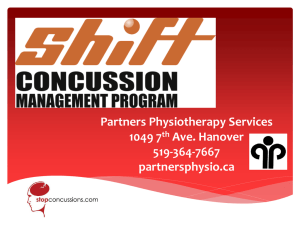
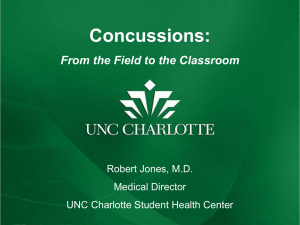
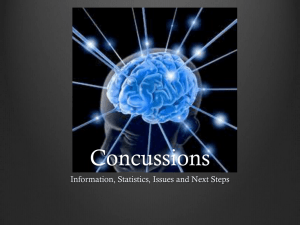
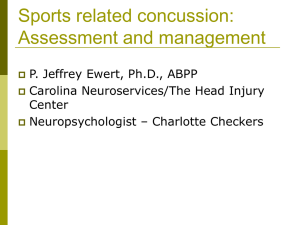
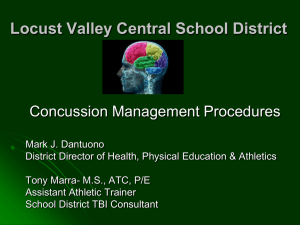
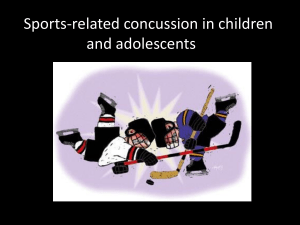
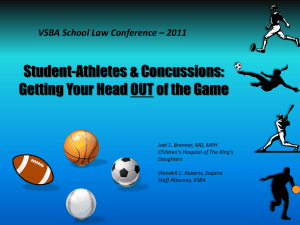
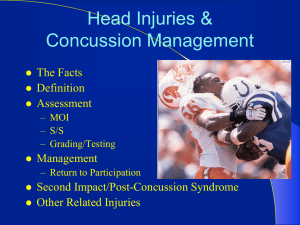

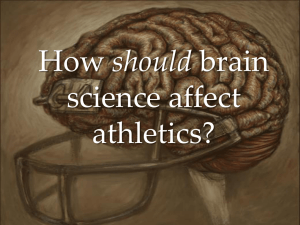
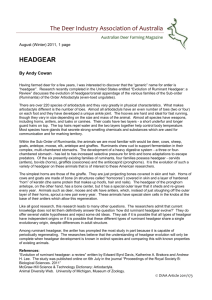
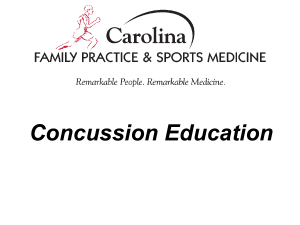
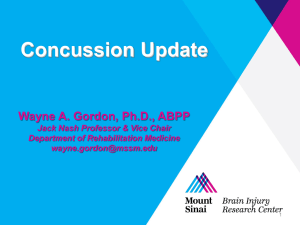
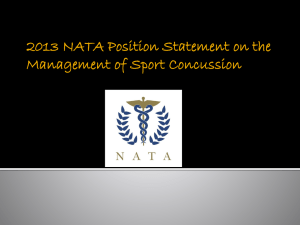
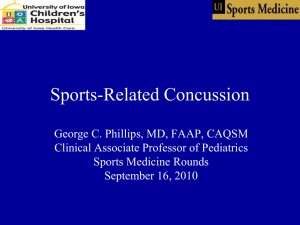
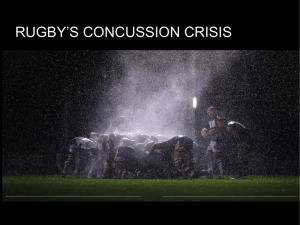
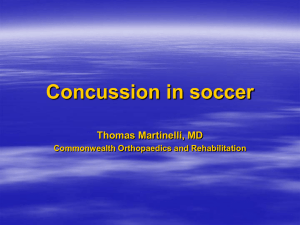
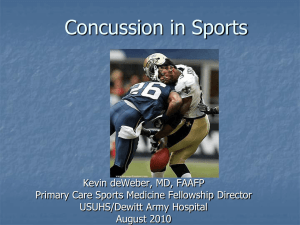
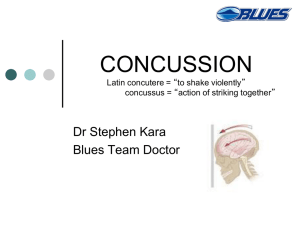
![Livingston.ConcussionMyths.NKYTBIConf[1]](http://s2.studylib.net/store/data/005485899_1-1b20bbadf2edaef0ebce3bd7bba6a007-300x300.png)
